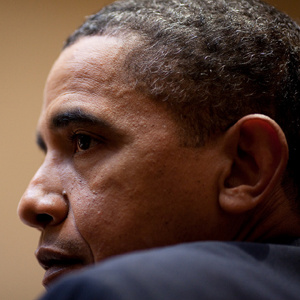The UN Speech and Obama’s Executive Order

However, unilateral sanctions against a country, though not supported by international law, are not without precedent. Their impact hinges upon the position of the perpetrator and the subject. A powerful boycotting power can attract friends and lies, exactly as in the case of the gasoline import embargo against Iran, introduced by the US Congress and then followed by some European countries. Unilateral sanctions, even if against international law, have a chance to become operational and become a tool in psychological warfare.
On September 29, 2010, US President Barack Obama signed an executive order that targeted Iranian officials alleged to be responsible for or complicit in human rights abuses in Iran. As a result of the order, financial and travel sanctions were imposed on these officials. This may be the first time an Iranian official faces such measures for a case involving human rights.
The decision will have no legal force if viewed from the purview of international law, since no internationally recognized legal body has verified it. It would be valid if the UNSC or the UN Council of Human Rights had a hand in issuing it. The US President’s order is merely a locally-valid command.
For a few years now the West has shown more interest in the state of human rights in Iran, and Iran has been occasionally singled out for condemnation by the UN Council of Human rights. The 2009 post-election developments put Iran once again under the spotlight. The situation has now worsened after Mr. Ahmadinejad’s visit to New York and his blunt rejection of the official version of the events of 9/11 official. Ahmadinejad’s doubts about the dominant narrative of the event were more powerful than any other non-mainstream document released so far. Whatever its cause, the 9/11 terrorist attacks were a turning point in US history and many in the United States are still carrying the scars of the attack. Thus the UN address of the Iranian president was an efficient catalyst for Obama’s subsequent decision.
* Ne’mat Ahmadi is legal expert and university professor.

